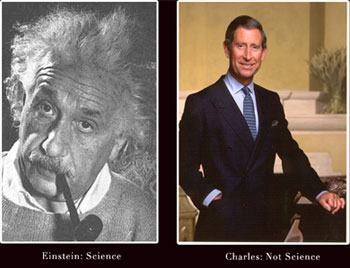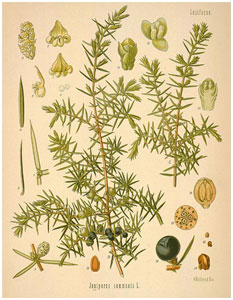|
|
||||||||
|
||||||||
The Trial of the Century (Taking the Willow out of Charles’ Bark) Mocking the afflicted is unpleasant, but duties often are unpleasant. It isn’t right to join a lynch mob, even if they are in the right. Having got my self-defence in early, a spot of Prince Charles bashing is in order. Charlie has advocated coffee enemas as a treatment for cancer and, for an encore, called for the World Health Organisation to adopt alternative medicine in some cases.
Also getting their self-defence in early, a group of thirteen medics have written to the Times and NHS trusts calling for an end to alternative treatments, doing so a day before Charles' speech. A jolly bun fight has ensured, with alternative medicine practitioners alleging a “conspiracy” by “drug companies”, and were subsequently described as “quacks” and “charlatans”. Homeopaths strike back, claiming the thirteen “have not read the evidence”. So what evidence is that? The trials could be funded by a coalition of kiddie fiddlers, neo-Nazis and the tobacco industry. There need be no dispute: no low accusations, no innuendo and no gratuitous insults. Let’s find out. Let’s take 100, or 200, or 1000 patients, and hire us some homoeopaths. They may do such tests as they see fit and prescribe such medication as is proper. They will prepare it and dish it out, ready for those patients to eat up. But here comes the cunning part: About half the patients will receive the actual homeopathic remedies and the other half won’t. But we won’t know what there getting: they won’t know what they’re getting. That way, there are no opportunities for bias. The trials could be funded by a coalition of kiddie fiddlers, neo-Nazis and the tobacco industry, the doctors could hate homeopathy and the homoeopathists despise the doctors and all of them loathe the patients, but it would not make any difference. As long as who’s getting what remains a secret, the trial will be fair and honest. And we will watch, and we will wait, and see how long it takes for the patients to get better. Finally, the reckoning: break open the sealed record and see who got what. Which group got better first? Big Pharma is expected to fund its own research, and it is unclear why Big Herbs should be any different. Every time this experiment has been tried, homeopathy has proved no more effective that the sugar pill. Sometimes, in studies with few patients, hopes of something better have been raised. These fade when the trials cannot be repeated or are shown to be flawed. Prince Charles has called for some 10 million pounds (a nice round sum, unless it’s your money being spent) to be spent on testing, the figure to be raised from the public purse. Big Pharma is expected to fund its own research, and it is unclear why Big Herbs should be any different. There is even an incentive: James Randi, a magician who has reinvented himself as an investigator of fraud has offered 1 million dollars to anyone who can demonstrate homeopathy works. The bounty remains unclaimed twenty years later.
Herbal remedies sound attractive, reportedly “contain no chemicals” (what, none?) and are “natural” (a quality they share with ricin, smallpox and plutonium). One of the most peculiar aspects of the business is that of dilution. Homeopathic medicine, it seems, is potent stuff: you start by diluting it a factor of 10. That’s about the concentration of alcohol in decent wine. You do this again, and again, and repeat. Some potions require this to process to be repeated 30 times: the equivalent of one molecule of substance for a volume of water the size of your body. One product, with sales of some $20million annually, requires this process 2000 times (roughly one molecule for a body of water 50 times the size of the earth). Imagine this dilution were to take place in some Cocktail Shaker of the Gods: you would need more water than there is matter in the universe to have one molecule of the “active” ingredient, extract of duck liver. Perhaps that’s what's making all the Quacks. The “explanation” is that water somehow remembers the active ingredient. It's certainly true that bonds form between water and stuff dissolved in it, otherwise they wouldn't dissolve. But these bonds form and are broken and reform in hundredths of billionths of a second. Water, composed of hydrogen born at the beginning of Time and oxygen forged in the heart of a dying star, condensed to liquid when the world was young. Four billion years later, that water comes into contact with vanishingly small amount of a homeopathic remedy. Do we really believe that the water somehow “remembers” the remedy, yet not the pox-ridden sewers it has flowed through, the intestines of the dinosaurs who gulped it and the bathtubs it has dallied in? The refurbishment of the NHS Royal Homeopathic Hospital has cost some 20 million pounds, and racks up £3.4 million each year. Is it ridiculous to ask for some – any – evidence that it works? |
|
|||||||
|
||||||||




